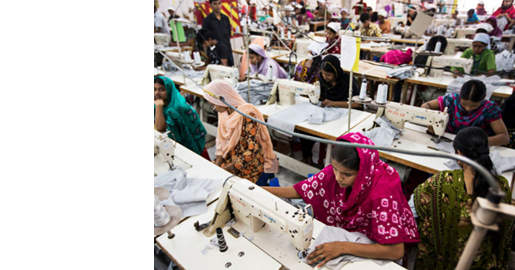In developing economies, which are often characterized by low and dispersed firm-level productivity, on-the-job learning has been argued to be a significant driver of productivity growth. By providing micro-evidence of on-the-job learning between co-workers within Bangladeshi Ready Made Garment (RMG) factories, this project will both complement an emerging strand of literature linking sub-firm level productivity data to worker characteristics, and aim to identify the conditions under which the productivity effects of on-the-job learning between co-workers are especially strong.
The study operates in the context of the Bangladeshi RMG industry and focuses on productivity data from multiple production lines that produce single garment types. The productivity effects of on-the-job learning are identified by comparing the productivity of lines when other lines have already produced the same garment to cases when no other line has yet produced the same garment. The researcher exploits variation in spatial distance between production lines, characteristics of products and buyers, characteristics of line supervisors and the social connectedness between those supervisors to distinguish the productivity effects of learning and determine the most favourable conditions to promote those effects.
As the Bangladeshi RMG industry is a rapidly growing export-oriented industry driving a significant part of the country’s growth in recent years, it is important to understand learning inside these firms and particularly the interaction of this on-the-job learning with worker and product characteristics, and also social networks inside the factories. With the clearer understanding this project can bring, policy makers will be able to design policies custom-tailored to improve the productivity of this sector that is crucial to the growth of many developing countries.





